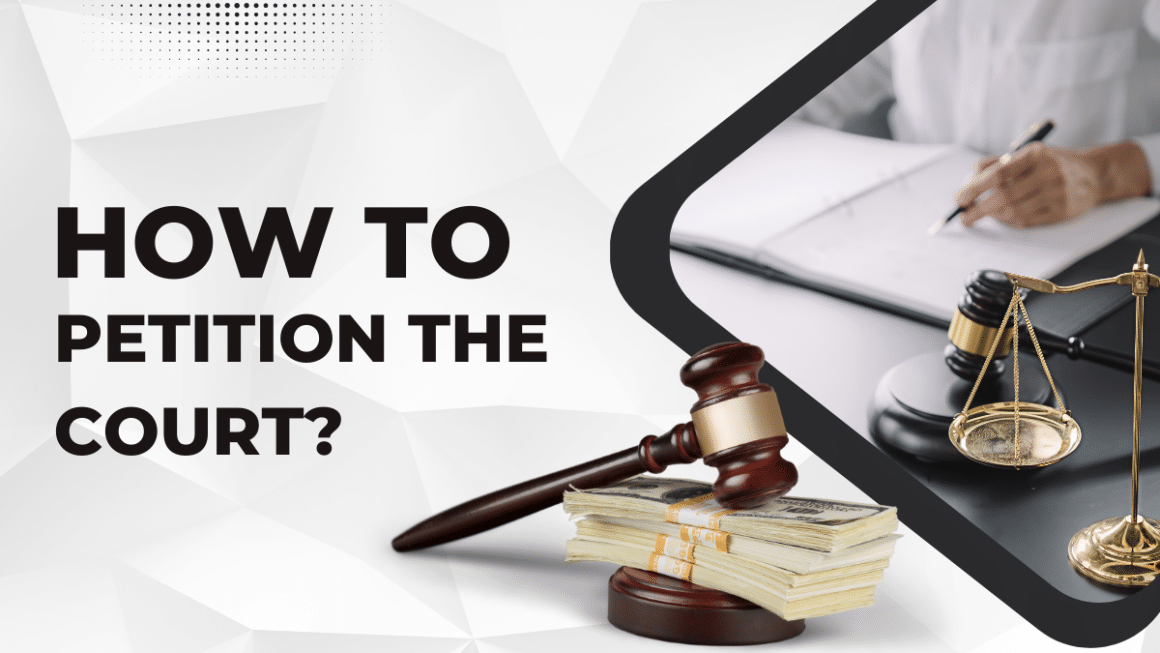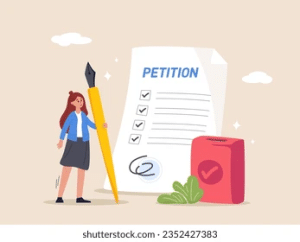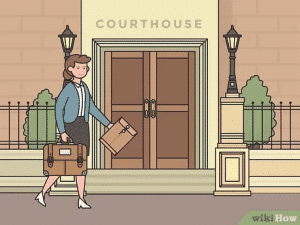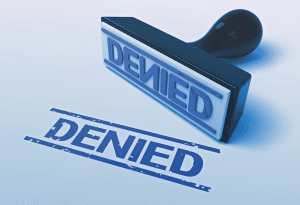Petitioning the court is like writing a letter to a teacher; instead, it’s to a special person called a judge. In this letter, you ask the judge to do something important, like helping solve a problem or deciding about a situation. Let’s learn more about how to petition the court in this article.
Petitioning the court resembles asking the appointed authority for help extremely formally. Individuals could do this if they need the appointed authority to conclude something significant, similar to who will really focus on a kid or how to tackle a conflict. It resembles lifting your hand in class to pose to the educator. Yet, in a court, you must observe unique guidelines and compose an exceptional letter to the adjudicator to make it happen.
How to petition the court? When you ask the court for help by composing a proper letter called a request, it’s essential to do so in the manner the court inquires. Similarly, as your instructor has rules for composing tasks, the court also has rules. These standards ensure everybody is dealt with reasonably and done appropriately. Thus, if you want to compose an appeal, you should observe these guidelines cautiously to guarantee the court figures out your solicitation.
Before we learn about the different types of petitions and explore ways to file a petition in court, let’s first understand the nature of the petition.
What is a petition? How to petition the court?
A petition is like a special letter people write to ask the government or an important group to do or change something. People use petitions to show that many others agree about a certain topic. It’s a way for them to say, “Hey, this is really important to us, and we want you to listen and make a difference.”
Individuals use petitions to discuss a wide range of things they care about, similar to the climate, rules locally, or decency and equity. It’s a way for some voices to meet up and express themselves.
How to petition the court? In the legitimate world, an appeal is a conventional solicitation individuals submit to a court. It’s a method for beginning a legitimate cycle or asking the court for assistance with a particular issue. For example, to get a separation or conclude who will focus on the youngsters, they would file a court request.
In criminal cases, on the off chance that somebody accepts they were dealt with unreasonably, they can record a request to request that the court survey their case or lessen their discipline. In lawful terms, a request is a way for individuals to request that the court choose significant legitimate issues.
A petition is a big letter many people sign to ask for something important. It usually explains the problem, what people want to happen, and why they think it’s a good idea. Sometimes, petitions show the government or other important people that many others agree with the request.
Individuals can sign these petitions to show their help; in some cases, these marks can assist with changing regulations or strategies. These days, with the web, individuals can make and sign petitions on the internet, making it much more straightforward for their voices to be heard.
A petition is like a giant group message where many people want something to change. The more people who join in, the stronger the message becomes. Sometimes, the people in charge listen and make the change everyone asks for.
Other times, it won’t work immediately, yet significantly, it shows everybody settles on something and maintains that it should be unique. Petitions resemble a collaboration to work on the world; regardless of whether they generally work in a split second, they can have a major effect by showing the number of individuals considering a specific issue.
What are the different types of petitions?
How to petition the court? Different types of petitions are like special tools that help regular people talk to the government and others in charge. These tools are important because they allow us to tell the leaders what we care about and want to change.
It’s like when you and your friends talk to your teacher about having a special fun day at school – you all work together to make something happen. Petitions are a way for adults to work together and talk to the important grown-ups about what they think is right and fair. Here are the main types of petitions:
- Legal petition
- Civil petitions
- Criminal petitions
- Family law petitions
- Government petitions
- Policy change petitions
- Election petitions
- Public interest petitions
- Online petitions
- Social media petitions
- org petitions
Legal petitions:
Legal petitions are like official letters that adults write to the special grown-up courts when they need help with important problems. It’s like when your parents talk to the principal about something bothering you at school.
These letters let the court know the issue and what they believe it should do, such as concluding who should deal with kids when guardians aren’t getting along. Individuals need to compose these letters with a specific goal in mind and keep the guidelines of their place. The court reads these letters and helps fix the problems the adults can’t solve alone.
Civil petitions:
Civil petitions resemble formal letters that individuals ship off to the extraordinary adult court when they have a major contention they can’t tackle alone. These contentions could be about who possesses a land parcel or, on the other hand, if somebody got injured in a mishap.
These letters let the court know what occurred and request help. In some cases, they maintain that cash should compensate for what turned out badly, or they could believe the court should advise somebody to do something well-defined to fix the issue. The court reads these letters and decides what’s fair to do to solve the argument.
Criminal petitions:
Criminal petitions are like special letters that people in trouble write to the court when they think something is not fair in their case. It could be if they believe they are innocent and want the court to look at their case again or think they should have a shorter punishment.
These letters are significant because they assist the court with guaranteeing everybody is dealt with decently and gets a fair opportunity to make sense of what occurred. The court peruses these letters and chooses if something should be changed in the individual’s circumstance.
Family law petitions:
Family law petitions are like official letters that grown-ups write to the court when they need their help with family matters. These matters can include parents deciding who their kids will live with after a divorce or if someone wants to legally become the parent of a child through adoption.
Sometimes, these letters are also written if someone needs financial support from their former spouse. These letters are important because they help families solve problems and make sure everyone is treated fairly, especially when big changes happen in a family. The court reads these letters and makes decisions to keep families safe and happy.
Government petitions:
Government petitions resemble letters that individuals keep in touch with their city, state, or country pioneers when they believe something should change. It’s a way for customary individuals to enlighten the public authority concerning issues they care about, such as tidying up a recreation area, halting contamination, or making new standards to guard everybody.
When many individuals sign a similar letter, it shows the pioneers that numerous people settled on the issue and believed they should take care of business. It resembles when many children request that their instructor have a pizza party – the more they ask, the more probable it is to work out!
Policy change petitions:
Think of a petition as a gathering that signs a letter to the public authority to request they make new principles or change existing ones. It resembles when you and your companions all ask your educator for a more drawn-out break or more fun exercises. The more marks, or names, on the request, the more it shows the public authority that many individuals need exactly the same thing.
How to petition the court? Individuals use petitions to discuss significant things like guaranteeing everybody can see a specialist while wiped out, safeguarding the climate, or further developing schools. It’s like saying, “Hello, a ton of us truly care about this, so if it’s not too much trouble, tune in and get it going!”
Election petitions:
Election petitions are like asking the teachers or grown-ups to check if a game was played fairly. Let’s say you and your friends had a race, but you think someone cheated. You could tell the teachers, and they would look into it to see if everything was done properly. In elections like big races for choosing leaders, people may not think the race was fair.
So, they can file a petition, which is like a formal letter, to ask the grown-ups in charge to make sure the race was fair and everyone followed the rules. If they find out someone cheated, they might have to do the race again or change the results. It’s a way to make sure everyone plays by the rules.
Public interest petitions:
Public interest petitions are like letters written by grown-ups to the teachers (or judges) when they notice something wrong that affects everyone in the school. For example, if a big mess in the playground could make everyone sick, a grown-up might write a letter to the teachers asking them to clean it up.
These letters are called public interest petitions because they are about things that matter to everyone, like keeping the school clean or ensuring everyone is treated fairly. The teachers (or judges) read these letters and then decide how to improve things for everyone in the school (or society).
Online petitions:
Online petitions are like signing a big virtual letter that many people can see on the computer or phone. Imagine you care a lot about saving the trees in your neighborhood, and you want others to care, too. You can create an online petition instead of going door-to-door with a paper and pen.
You write down why saving the trees is important, and people who agree can add their names online. When many people sign, it shows they care about the trees. It’s like shouting your message on the internet, where many people can hear you and join in to help make a change!
Social media petitions:
How to petition the court? Imagine you have a cool idea or a cause you care about, like helping animals or cleaning up the environment. There are special pages on social media where you can write down your idea and ask people to support it. It’s like telling all your friends and their friends about it online.
They can read your idea, and if they agree, they can click a button to show their support. The more people click, the more the idea spreads, like a big wave of support on the internet. It’s a fast and easy way to get many people to notice and care about important things!
Change.org petitions:
Change.org is like a big online bulletin board where people post things they care about. Imagine you have a great idea to improve your school, like starting a recycling program. You can write it down on Change.org, and if other kids, parents, or even people from different places agree with you, they can sign their names to support your idea.
It’s like having a huge group of friends all saying, “Yes, we want this too!” Change.org helps your voice become louder because more people can see and support your ideas, making it easier to make a positive change in the world.
How to petition the court?
When you want to ask the court for help, like in a serious problem or a disagreement, you must be careful and follow all the rules. It’s like playing a board game where you must follow the rules to win. How to petition the court? Here is how you can petition the court:
- Understanding the legal issues
- Consulting an attorney
- Drafting the petition
- Filing the petition
- Serving notice to the opposing party
- Attending court hearings
- Following court orders
Understanding the legal issues:
Before asking the court for help, you need to know exactly the problem. It’s like figuring out the puzzle pieces to see the whole picture. Whether it’s about parents getting divorced or a problem with someone else, you must find out the rules that apply to your situation. Think of it like learning the rules of a new game. The better you understand the rules, the better you can play the game and solve your problem.
Consulting an attorney:
Getting help from a lawyer is really important when you have a legal problem. Think of a lawyer as a superhero who knows all the rules of the game and can help you play it right. They can explain what you can do and make sure you ask the court for help in the best way possible. They’re like having a wise friend who knows everything about the law and can guide you to make the right moves.
Drafting the petition:
Writing a petition means making a special paper explaining your problem, why it’s a problem, and what you want the court to do about it. You have to be clear and not add extra things that don’t matter to your case. Think of it like telling a story to the court, where you share the important parts so they can understand and help you.
Filing the petition:
After making your petition, you must give it to the right court. Each court has its own rules, so you have to follow them. It’s like following the instructions in a game. You fill out forms, pay some money, and give copies of your petition to everyone involved so the court knows what’s happening.
Serving notice to the opposing party:
Once you submit your petition, the other person involved must know about it. It’s like inviting them to a game – you must ensure they get the invitation. This can be done by sending special mail, having someone officially deliver the message, or even involving the police, depending on the rules in your area. It’s important to play fair and let everyone know what’s happening.
Attending court hearings:
Going to court is like being in a school presentation, but you’re talking to a judge about your case. You must show proof, answer questions, and be polite, just like in class. If you have a lawyer, they’ll help you and speak for you in court. It’s important to listen and be respectful during the whole process.
Following court orders:
If the judge makes rules after hearing your case, you have to follow them, just like following the rules at home or school. If you don’t, there could be legal problems. Talk to your lawyer and do what the judge says to avoid trouble.
What can lead to the denial of your petition?
Doing things the right way increases your chances of winning your case. It’s like studying well for a test – the more you prepare, the better your chances of getting a good grade. How to petition the court? Here are the factors that can influence your petition in court:
- Insufficient evidence
- Procedural errors
- Lack of jurisdiction
- Failure to state a legal claim
- Violation of court rules
- Inadequate legal representation
- Conflict with existing laws or precedents
Insufficient evidence:
If you don’t have enough proof for what you’re saying in your petition, the court might say no. Imagine convincing your teacher that you finished your homework but can’t show it to her – she might not believe you. So, collecting all the papers and information proving your point is crucial before you ask the court for help.
Procedural errors:
How to petition the court? When you make a petition, there are certain rules you have to follow, just like playing a game with its own set of rules. If you don’t follow these rules, like sending the petition incorrectly or missing important dates, the court might not accept your petition. If you were playing a game but didn’t follow the rules, you might lose. So, it’s really important to know and follow the right steps.
Lack of jurisdiction:
Think of jurisdiction as a game being played in a specific playground. If you play the game in the wrong playground, the organizers won’t recognize your game. Similarly, if you file a petition in the wrong court that doesn’t have the authority to handle your problem, they won’t accept it. You must ensure you’re playing the right game in the right place!
Failure to state a legal claim:
Your petition is like telling the court why you’re upset. If you can’t explain why the court should help you using the rules and laws they follow, they might be unable to help. It’s like telling a teacher you need help with a problem in class – you have to explain the problem clearly, or they won’t know how to help you.
Violation of court rules:
How to petition the court while maintaining ethics in a court? When you’re in court, you have to follow the rules, just like in a game. If you don’t play by the rules or are disrespectful, the judge might not listen to your petition or request. It’s like playing by the rules in a board game – you might lose your turn if you don’t follow them.
Inadequate legal representation:
If you don’t have a lawyer to help you in court, you might make mistakes because you don’t know all the legal rules. These mistakes could weaken your request to the judge, and they might not approve it. But if you have a good lawyer, they can ensure you do everything right, making it more likely for the judge to listen and help you. It’s like having a coach in a sports game who knows all the rules and helps you play better.
Conflict with existing laws or precedents:
If your request goes against the existing laws or how similar cases were decided before, the judge might say no. Courts follow the rules, like in a game, and if your request doesn’t follow those rules, they might not approve it. It’s like asking to play a new game but not playing by the game’s rules everyone else knows.
Conclusion:
How to petition the court? Knowing how to petition in court means understanding how to ask for help or address problems using the law. People use petitions to ask for fairness or to solve issues formally. Petitions help them talk to the people in charge and explain why something needs to change. Whether it’s a legal case, a request to the government, or an online petition, it’s important to be careful, follow the rules, and provide good reasons for what you’re asking. Petitions are like well-written letters that can make a big difference.




